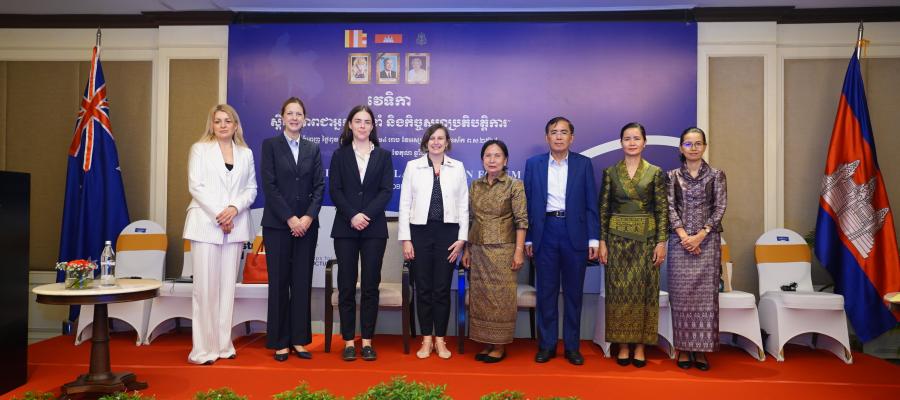If you are interested in partnering with us, please get in touch. Using P4I's flexible, innovative tools and diverse global expertise, we are confident we can design a response that is tailored to your needs.


Across Southeast Asia, women remain significantly under-represented in infrastructure, especially in decision-making roles. While women make up just 14% of the transport workforce and 8% of the energy workforce, their representation in senior and middle management is even lower, at just 26%. Most are concentrated in administrative or commercial positions, with limited access to leadership pathways, technical roles, or strategic planning spaces.
Not only do these figures contrast with gender equality commitments adopted at both ASEAN and national levels, they also reflect a missed opportunity for economic and social development. Advancing gender equality in the Asia-Pacific could add US$4.5 trillion to regional GDP by 2025, with infrastructure playing a critical enabling role in that growth. Yet persistent structural barriers continue to limit women’s participation in leadership, resulting in infrastructure systems that are often designed around a limited set of perspectives, rather than the diverse realities of the people who use them, such as women, children, people with disabilities, older people, and other marginalised groups.
Barriers to women’s leadership in infrastructure are reinforced at multiple stages of a career. Women with technical qualifications are often not given opportunities to lead projects, manage teams, or participate in decision-making. Pathways to promotion are rarely clear or consistent, and leadership roles are frequently shaped by informal networks that many women are not part of. In some ministries, workplace norms around international travel, long hours or field deployment can further constrain advancement. Particularly where there are few senior women to model alternative paths.
To address these challenges, P4I’s response recognises that individual progress means little without institutional change. At the individual level, leadership training and mentoring programs provide mid-career women with structured support to strengthen their skills, confidence and career direction, responding to the absence of visible advancement pathways across much of the infrastructure sector. At the institutional level, P4I works with ministries and training bodies to embed gender equality, disability equity and social inclusion into planning processes, workplace systems and long-term policy development. This dual approach supports women to step into leadership roles and helps create institutional conditions that make those roles viable over time.
In 2024, P4I co-hosted the ASEAN–Australia Women’s Leadership and Gender Mainstreaming in Infrastructure workshop in Jakarta, bringing together more than 90 participants from across Southeast Asia. The workshop created space for policy dialogue, regional coordination and peer learning, helping surface shared challenges around women’s advancement and institutional inclusion. It also marked a shift in momentum, laying the groundwork for deeper national engagement and the design of context-specific programs that could respond to local needs.
That momentum is now translating into tangible change. In Cambodia, a leadership and mentoring program for officials in the Ministry of Public Works and Transport supported 61 staff — 69% of whom were women — through an eight-week training course. Thirteen women mentees were also paired with senior Australian women mentors to strengthen their leadership capabilities, expand networks, and gain international exposure. Several participants have since earned promotions or taken up secondments abroad, while institutional support has grown, including renewed commitment to internal Gender Working Groups and plans to embed training resources into MPWT’s transport graduate program curriculum.
In Laos, efforts are underway to embed inclusive leadership within the energy sector, with a focus on gender-sensitive planning and decision-making. Through a new leadership program and collaboration with the World Bank’s Public–Private Infrastructure Advisory Facility, P4I is working with the Ministry of Energy and Mines to build internal capacity to design an energy transition that are more inclusive, sustainable and responsive to community needs.
The progress seen in Cambodia and Laos highlights what is possible for women’s leadership in infrastructure when collaboration is matched by sustained institutional support. As momentum grows, continued investment in regional cooperation and institutional change will be key to ensuring this shift is sustained and scaled across the region.
Read more about P4I’s women leadership initiatives and achievements in this case study: Breaking barriers: supporting women’s leadership in infrastructure
If you are interested in partnering with us, please get in touch. Using P4I's flexible, innovative tools and diverse global expertise, we are confident we can design a response that is tailored to your needs.
